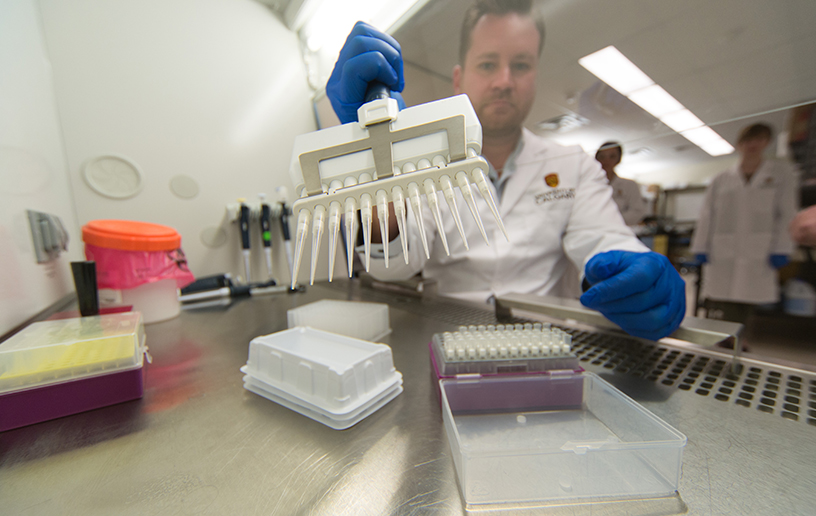The innovation ecosystem being cultivated by the University of Calgary received a substantial boost with a significant funding announcement from the federal government for four key projects that help take cutting-edge research and turn it into commercial ventures.
Western Economic Diversification Canada announced a total of $7.2 million targeted at UCalgary initiatives designed to foster innovation and help diversify Calgary’s economy.
“This funding will provide crucial resources, and it demonstrates a firm commitment to driving innovation at the University of Calgary, as we continue advancing real-world solutions in our community and around the world,” says Dr. Ed McCauley, president of the University of Calgary. “We’re excited that Western Economic Diversification Canada sees the capacity of our researchers and values their contributions to society.”
The funding announcement includes $3.1 million for the Life Sciences Innovation Hub, $1.1 million for the W21C Digital Health Innovation Hub, $2 million for Alberta Precision Exchange (APEX), and $1 million for the Creative Destruction Lab – Rockies. Read the announcement and the backgrounder.






